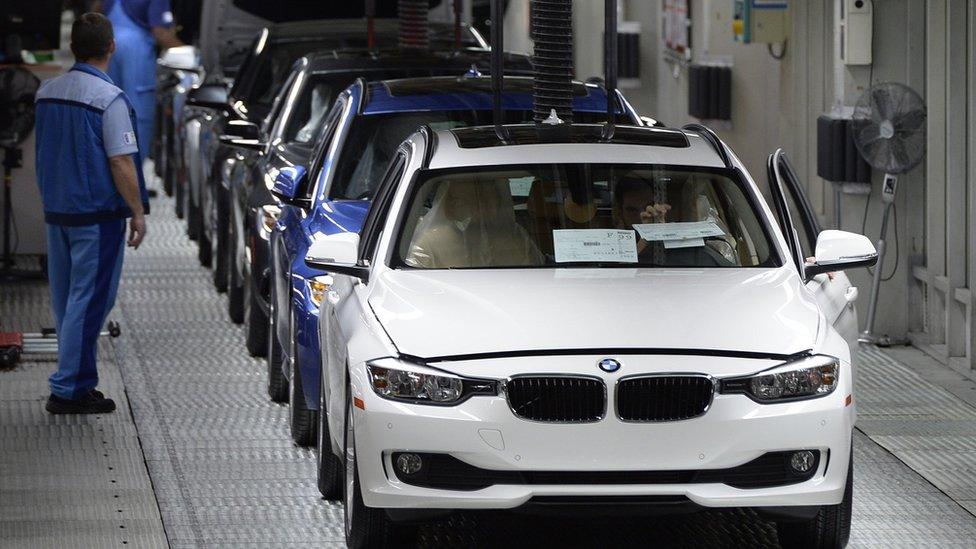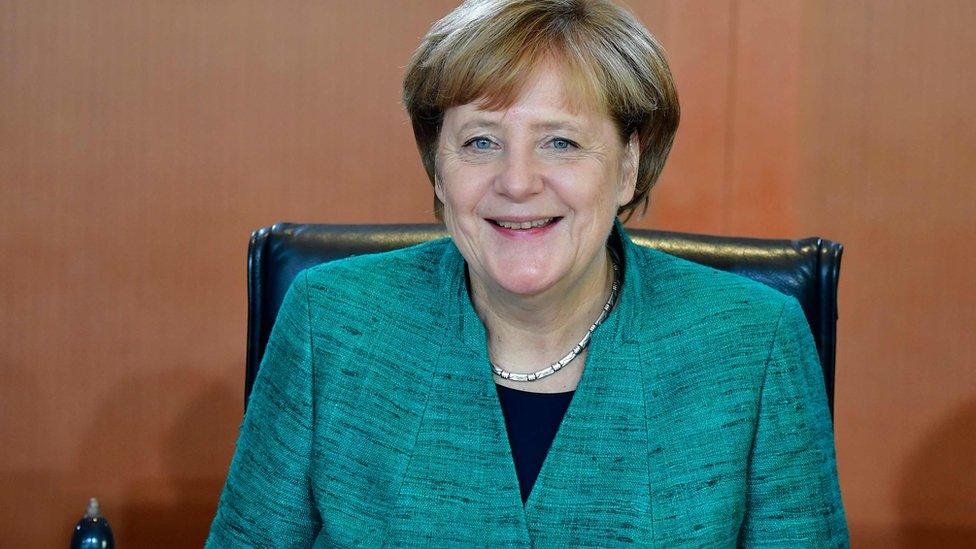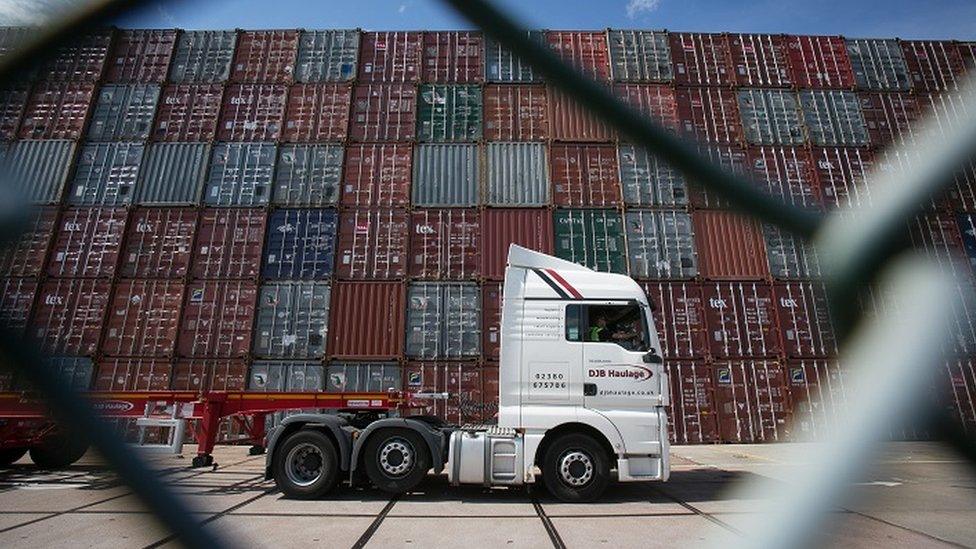Can we rely on the Germans?
- Published
- comments

Fact: BMW, VW and Mercedes sold nearly 600,000 cars in the UK last year. It is their biggest external market in the EU.
Hypothesis: The powerful German car industry will lean on Angela Merkel to lean on Michel Barnier to secure tariff-free trade between UK and EU.
As the fifth-largest economy in the world, the UK is an incredibly important market for the giants of the German car industry.
Executives publicly say they are dismayed at the prospect of tariff and non-tariff barriers hampering trade and throwing sand in the carefully tuned engine of pan-European supply chains.
It is, therefore, a perfectly reasonable hope - one many have expressed - that these German manufacturers would marshal all their political clout to ask Angela Merkel to intercede on their behalf in Brexit negotiations.
A quick word in the ear of Mr Barnier from the EU's loudest economic voice would surely result in an outbreak of economic and trade pragmatism.
I can also report that when German manufacturers air their concerns with Theresa May, the UK Prime Minister urges them to communicate their fears direct to Mrs Merkel - thereby creating a useful feedback channel direct to Europe's most influential leader.
However, conversations with company and diplomatic sources suggest this channel, and the influence the government hoped might flow through it, is not working. Why not?
First, Angela Merkel has other things on her mind. Although she won the recent German election she is politically weaker within Germany than ever as the CDU party had its worst result since 1945.

Angela Merkel has bigger problems that the UK car industry to deal with
The anti-immigration Alternative für Deutschland party will take 88 seats in the Bundestag and the refusal of the centre-left SPD to join Merkel in a "grand coalition" leaves her still facing weeks of talks with several small parties to secure a governing majority.
Car executives tell me that when they oblige Theresa May by taking their concerns to Mrs Merkel, she tells them she has her hands full and that this is a problem for Brussels - not Berlin.
A second, and related, point is that German car companies are sympathetic and respectful of her priorities both at home and within the European Union. If Mrs Merkel thinks strong leadership in Germany and preserving the integrity of the EU is more important than losing some sales in Britain, then that is fair enough.
It was perfectly clear watching car industry officials give evidence to MPs today that the UK industry is deeply worried about the potential tariff and non-tariff barriers that a "no deal" scenario might mean. An Aston Martin executive said a "no deal" scenario could result in a "semi-catastrophic" halt in production.
Car makers around Europe have similar fears - particularly those that manufacture in the UK. But relying on the German car industry to intervene in their own economic self interest is a risky strategy.
- Published13 November 2017
